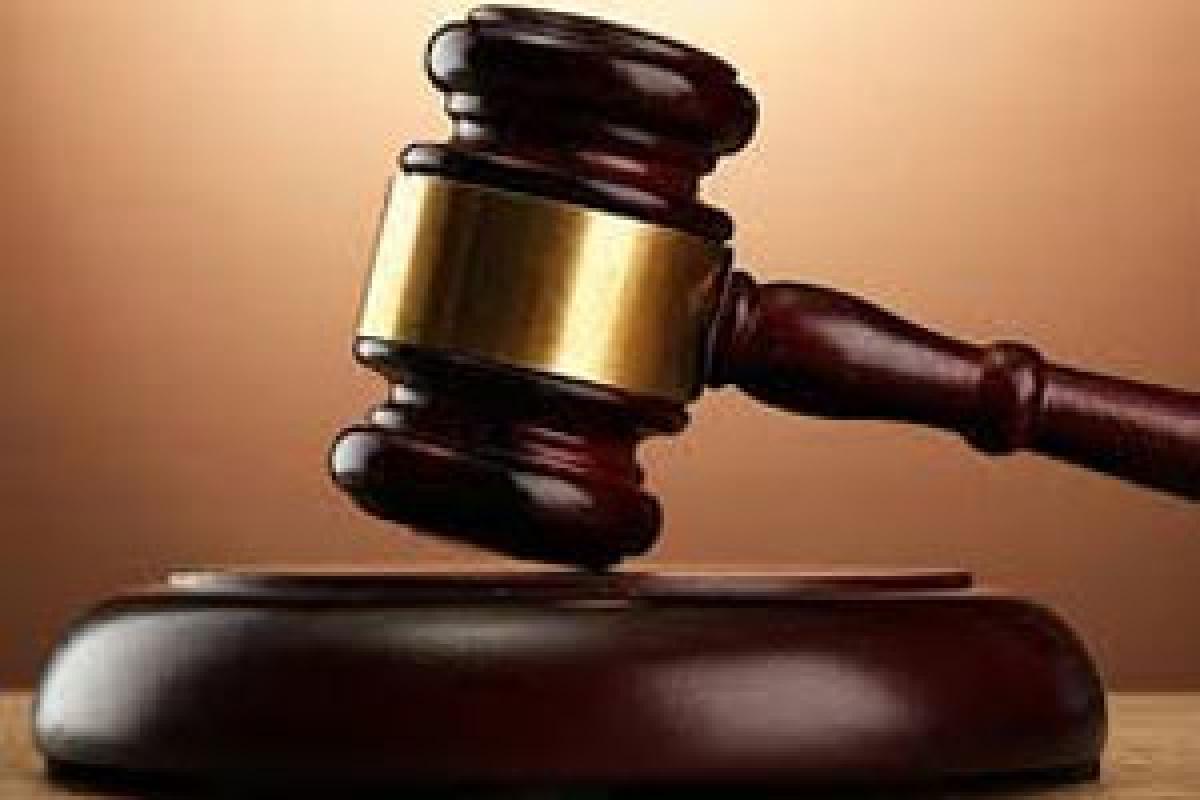Live
- Surprise Inspection Conducted by AO on Pesticide Shop in Bijnapally Mandal
- Priyanka recalls family’s ancestral bonding with J&K
- Awareness Program on Sakhi Services Held in Kollapur
- All Works Must Be Completed Within a Week – Collector Badavath Santosh
- Code of Conduct Restricts Celebrations of National Laureate's Anniversary
- Youth Must Preserve Culture and Traditions – District Collector Badavath Santosh
- Awareness on Rabies is Essential – Collector Badavath Santosh
- IG Satyanarayana IPS Conducts Surprise Inspection of Veldanda Police Station
- Srinivas Goud Assures HYDRA Victims
- Global Trade initiative SME Forum Launches new campaign
Just In

The interesting factor relates to multiple applications made by the likes of Fali Nariman seeking Justice JS Kehar to recuse from the hearing of the case. He is stated to have said: The impression in peoples mind would be that it is inappropriate if not unfair if a sitting member of a Collegium sits in judgment over a scheme that seeks to replace it.
 There is an interesting factor to the NJAC case that requires mention and has somewhere lost its importance in the context of the prevailing and seemingly larger issue. While kudos to Justice Chalameshwar continue to pour in, we hear the wise counsel of the first man telling the country how none should interfere with the appointment of judges. Hallowed echo.
There is an interesting factor to the NJAC case that requires mention and has somewhere lost its importance in the context of the prevailing and seemingly larger issue. While kudos to Justice Chalameshwar continue to pour in, we hear the wise counsel of the first man telling the country how none should interfere with the appointment of judges. Hallowed echo.
The interesting factor relates to multiple applications made by the likes of Fali Nariman seeking Justice JS Kehar to recuse from the hearing of the case. He is stated to have said: The impression in peoples mind would be that it is inappropriate if not unfair if a sitting member of a Collegium sits in judgment over a scheme that seeks to replace it.
Another petitioner would voice concern stating: the noble heart of his Lordships, Justice Khehar could unwittingly be influenced by the “nonconscious”, subconscious, unconscious bias, his Lordships having been placed himself in a position of conflict of interest.
The judge went on to preside over the list and gave his version of how, though, he was always willing to be out of the hearing process and had no personal desire to participate in the hearing; it is his take on why he would not recuse that makes for some interesting reading.
The judge points out that an order was made overruling the objection and when he still had doubts on whether he should be part of the bench how his colleagues would have none of it. The learned judge then went to pose two important questions: Firstly, whether a Judge hearing a matter should recuse, even though the prayer for recusal is found to be unjustified and unwarranted? Secondly, whether I would stand true to the oath of my office, if I recused from hearing the matters?
A reading of the judgement would reveal that the judge saw that he was chosen was such treatment. He pointed out that earlier such objection was not taken and also that other members of the bench would also in course of time be members of the collegium and therefore exclusion on that count was not reasonable. “If I were to accede to the prayer for my recusal, I would be initiating a wrong practice, and laying down a wrong precedent”.
This was exactly the plea raised by the legal luminaries at the Bar. They, too, were not against the individual hearing the matter. They, too, were afraid that by hearing a matter that involves your rights even in the abstract would be a question of a ‘wrong precedent’.
The judge pointed out: the prayer for my recusal is not well founded. I suspect that is begging the issue. While no one has doubts of the integrity of the judge in question, the issue was “precedent”, which the learned judge said he would be laying the wrong one. Did he?
Yet another aspect the judge pointed out as an important aspect related to standing true to the oath of his office. I did read the judgement in detail on this aspect and found little analysis on the subject but for the declaration. The country today has no doubt that whatever may be the shortcoming of the judgment it is not wanting in honesty and integrity. How will the future handle the challenge? How will it be with precedents? How will it be when the proposition is stated and the conclusion placed?
No space in 1,000 odd pages for a detailed reasoning on a crucial aspect! Precedent. Tomorrow you have challenge coming. Just the other day, the present passed it on to you.
By:L Ravichander

© 2024 Hyderabad Media House Limited/The Hans India. All rights reserved. Powered by hocalwire.com







